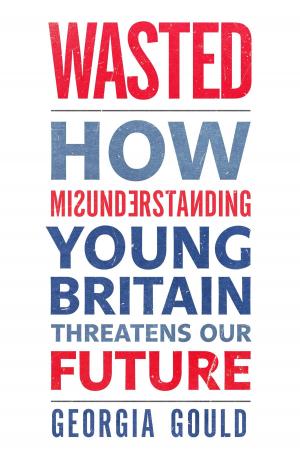| Author: | Bhaskar Sarkar | ISBN: | 9781311567406 |
| Publisher: | Bhaskar Sarkar | Publication: | November 17, 2015 |
| Imprint: | Smashwords Edition | Language: | English |
| Author: | Bhaskar Sarkar |
| ISBN: | 9781311567406 |
| Publisher: | Bhaskar Sarkar |
| Publication: | November 17, 2015 |
| Imprint: | Smashwords Edition |
| Language: | English |
The Islamic State (IS) proclaimed itself to be a worldwide caliphate with Abu Bakr al-Bagdadi as its Caliph on 29 June 2014. It controls territory occupied by 8 to 10 million people in Iraq and Syria. It is a ruthless, barbaric group of Islamic fundamentalists which has no respect for human rights. IS is a well organized, well led army of fanatical fighters ready to die for the glory of Islam. It is the biggest threat to world peace. The US coalition, Russia, Iraq and Syria are unable to defeat it even after carrying out about 8000 air raids and providing weapons and training to the regional armies.
The fight against IS in Iraq and Syria seems to have stalled for the present. Air strikes are killing people and destroying targets. Car bombs and suicide attacks are playing havoc. Soldiers and civilians are dying. Innocents are being forced away from their homes into refugee camps. The countries that surround the battle zone are playing games and trying to address their national interests and concerns. There is no consensus on the way forward. Bombing raids did not win wars in Vietnam, Afghanistan, Iraq or Yemen. Why should it be any different in the fight against IS?
The world agrees that IS must be defeated. But opinions differ widely on how this should be achieved. Saudi Arabia, for example, believes that IS cannot be defeated unless Syrian President Bashar al-Assad is removed from power. Turkey also seconds this view.
The absence of a clear policy seems to give credence to the view that the US is not interested in defeating the IS. It wants the fighting to continue. Fighting around the world is great for the American arms industry and the economy. So what if the total number of refugees in the world has increased to over 80 million and prosperous cities in more and more countries are being reduced to rubble. So what if hundreds of thousands of refugees from Syria and Iraq are pouring into Europe. It is also a fact that America has never won a war since World War II. Korean Conflict has been frozen. Americans got tired and withdrew from Vietnam, Iraq, Somalia, Lebanon and Afghanistan without achieving their strategic objectives. With the Atlantic Ocean to isolate it from potential threat from IS, it can afford to allow the war against IS to linger. Can Europe and Middle East countries do that without getting singed by the conflict?
IS is expanding in Afghanistan and Libya and will take control of these two war torn and politically unstable countries unless the US led coalition is able to defeat it. Russia seems to have made up its mind to protect the Assad regime in Syria at all cost. That could make life difficult for Syrian rebels and also IS and increase human misery.
It is also surprising that the Christian world has abandoned the Christians of Syria and Iraq. The Pope or Patriarch of the Greek Orthodox Church is unconcerned. Why should European Christians worry about the fate of unknown Third World Christians? The endless influx of Syrian and other refugees into Europe may force the EU and NATO to cooperate with Russia, stop the fighting in Syria and get physically involved in fighting the IS.
The Kurds believe the only way to defeat IS is to fight it with all resources at the world's disposal. It’s a disappointingly simple strategy. The world would be a safer and better place if all the stake holders could agree with the Kurds. But can they? Given the divergence of views amongst the US led Coalition and with Russia on how to fight the IS, the Fifth Caliphate is here to stay and grow in size.
What makes IS invincible? Why is no one taking it seriously? How can it be defeated? The book seeks to answer the questions. The book is written by a professional for professionals, academics and journalists and concerned laymen.
The Islamic State (IS) proclaimed itself to be a worldwide caliphate with Abu Bakr al-Bagdadi as its Caliph on 29 June 2014. It controls territory occupied by 8 to 10 million people in Iraq and Syria. It is a ruthless, barbaric group of Islamic fundamentalists which has no respect for human rights. IS is a well organized, well led army of fanatical fighters ready to die for the glory of Islam. It is the biggest threat to world peace. The US coalition, Russia, Iraq and Syria are unable to defeat it even after carrying out about 8000 air raids and providing weapons and training to the regional armies.
The fight against IS in Iraq and Syria seems to have stalled for the present. Air strikes are killing people and destroying targets. Car bombs and suicide attacks are playing havoc. Soldiers and civilians are dying. Innocents are being forced away from their homes into refugee camps. The countries that surround the battle zone are playing games and trying to address their national interests and concerns. There is no consensus on the way forward. Bombing raids did not win wars in Vietnam, Afghanistan, Iraq or Yemen. Why should it be any different in the fight against IS?
The world agrees that IS must be defeated. But opinions differ widely on how this should be achieved. Saudi Arabia, for example, believes that IS cannot be defeated unless Syrian President Bashar al-Assad is removed from power. Turkey also seconds this view.
The absence of a clear policy seems to give credence to the view that the US is not interested in defeating the IS. It wants the fighting to continue. Fighting around the world is great for the American arms industry and the economy. So what if the total number of refugees in the world has increased to over 80 million and prosperous cities in more and more countries are being reduced to rubble. So what if hundreds of thousands of refugees from Syria and Iraq are pouring into Europe. It is also a fact that America has never won a war since World War II. Korean Conflict has been frozen. Americans got tired and withdrew from Vietnam, Iraq, Somalia, Lebanon and Afghanistan without achieving their strategic objectives. With the Atlantic Ocean to isolate it from potential threat from IS, it can afford to allow the war against IS to linger. Can Europe and Middle East countries do that without getting singed by the conflict?
IS is expanding in Afghanistan and Libya and will take control of these two war torn and politically unstable countries unless the US led coalition is able to defeat it. Russia seems to have made up its mind to protect the Assad regime in Syria at all cost. That could make life difficult for Syrian rebels and also IS and increase human misery.
It is also surprising that the Christian world has abandoned the Christians of Syria and Iraq. The Pope or Patriarch of the Greek Orthodox Church is unconcerned. Why should European Christians worry about the fate of unknown Third World Christians? The endless influx of Syrian and other refugees into Europe may force the EU and NATO to cooperate with Russia, stop the fighting in Syria and get physically involved in fighting the IS.
The Kurds believe the only way to defeat IS is to fight it with all resources at the world's disposal. It’s a disappointingly simple strategy. The world would be a safer and better place if all the stake holders could agree with the Kurds. But can they? Given the divergence of views amongst the US led Coalition and with Russia on how to fight the IS, the Fifth Caliphate is here to stay and grow in size.
What makes IS invincible? Why is no one taking it seriously? How can it be defeated? The book seeks to answer the questions. The book is written by a professional for professionals, academics and journalists and concerned laymen.















